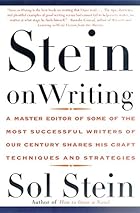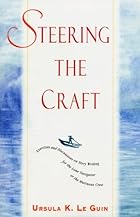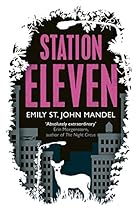
I’ve now read enough writing books to know that most aspects of good writing can be taught, although some of it comes natural to some writers. It is both an art and a craft and good writing books teach you the craft. Sol Stein’s is a good writing book, as you’d expect from a famous editor. He has probably the best explanation of “show don’t tell” that I’ve read. he is a bit sniffy about "commercial" fiction though ...
Overall - If you’d like to learn what makes good writing good then read this book.
Steering the craft by Ursula Le Guin

I find I don’t have much to say about this book, which I read some time ago and have not got round to reviewing. Whilst it is a good introduction, with examples and exercises, of how to write I didn’t find that it spoke to me.
Overall - Worth a read for aspiring writers but no earth shattering insights
The writers and artists guide to How to Write by Harry Bingham

This is a fine writing guide with lots of modern examples, a comprehensive guide to writing (but not editing) that is easy to read and follow.
Overall – useful guide, but not one for dipping into
Weirdmonger by D F Lewis

Why?
You want a longer review? Well this is a collection of writing from D F Lewis. Writing, words on the page, no more no less and certainly not stories. So my question is, why? Why produce a thick book of writing that has no trace of story? Maybe I’m missing something?
Overall – No really, why?
Station eleven by Emily St. John Mandel

In the here and now Georgian flu explodes across the world with a mortality rate of 99%. Twenty years after the collapse of civilisation the travelling symphony moves through northern America performing concerts and Shakespeare plays because, as is written on one of their caravans ‘survival is insufficient’. The book cleverly weaves the stories of its main protagonists together throughout time skipping forwards and backwards to the days before and after the flu, adding layers of detail and revealing new depth as it goes.
We get to see the interconnectedness of the world through the relationships surrounding Arthur, an aging film star, in the lives he touches. There is Kirsten, a child actress who becomes a key member of the symphony and who carries a comic called Station Eleven written by Arthur’s first wife. Jeevan, a former paparazzi turned paramedic who is at a production of King Lear that Arthur and Kirsten are appearing in. Clark, Arthur’s friend who, after the flu, builds the museum of civilisation. The flu is a device, a background one that is not gone into in much detail, this isn’t [The Stand] and Mandel spends little time dwelling on how the flu spreads or how civilisation collapses. We do see some of the collapse through the eyes of Jeevan but he mostly just watches out of a window. But this isn’t what the book is about, it doesn’t concern itself with distasteful survival, it concerns itself with how to live and with beauty. Survival is insufficient.
There is a message that many people are just sleepwalking through their lives, highlighted most obviously in Clark’s pre-flu story with his unfulfilling life, or Jeevan’s story about having no justification to be a paparazzi, and later an entertainment journalist, or even Arthur whose own story explores the shackles that success and fame can bind you with. There are themes that come forth in the art and story of the comic which gives the book its title and King Lear is obviously of importance too and there are echoes, reflections, resonances with the comic and the play to be found within. It is an accomplished, often spellbinding and affecting book that took a while to get a grip on me, but once it did I breezed through the second half in no time at all.
Overall - This is ultimately a book about relationships on a very human scale and what makes life worth living. Impressive and recommended.
No comments:
Post a Comment